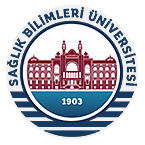ABSTRACT
The role of granulocyte-colony stimulating factor (G-CSF) administration on day +5 after peripheral blood stem cell transplantation in terms of hematologic engraftment and supportive treatment need has been evaluated. Forty two consecutive patients with solid and hematological malignancies were enrolled in two groups depending on G-CSF administration. Twenty seven patients were given G-CSF (5 μg/kg/day) from day +5 after the transplantation until the achievement of neutrophil engraftment. Post-transplant GCSF was not given to the control arm of 15 patients. A number of at least 2X106 CD34+cells per kilogram collected by cytapheresis were given to all patients. A significant difference was found between the two groups in favor of G-CSF receiving group, in terms of neutrophil engraftment time (10.55±1.21 vs 11.93±2.89 days; p=0.04), number of days with fever (3.33±2.66 vs 5±2.95 days; p=0.03) and number of days requiring antibiotic therapy (7.07±3.46 vs 11.87±3.74 days; p<0.001), whereas no statistically significant differences were noted in terms of hospitalization period (13.30±4.79 and 13.53±2.56 days; p=0.26), platelet engraftment time (12.22±2.79 and 13.40±3.89 days; p=0.26) and erythrocyte transfusion need; however, platelet transfusion need was statistically significant between the groups with and without G-CSF support (1.27±0.96 vs 0.56±0.75, p=0.01). This study revealed that starting G-CSF on day +5 may fasten the neutrophil engraftment, decrease the number of days with fever and decrease the need for antibiotic therapy in post-transplant period.



